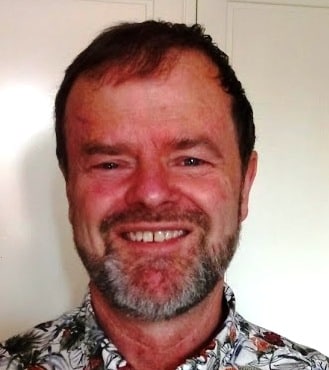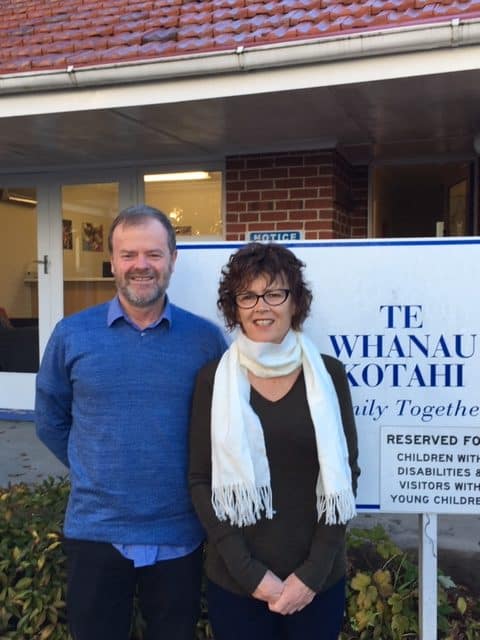The Incredible Years Autism Group-Based Parenting Programme for Children aged 2 to 5 years on the Autism Spectrum (ASD) a New Zealand Pilot Study (February 2016).

The Idea
In 2015 my colleague Gill Duncan, an Incredible Years facilitator, approached me about running an Incredible Years Autism Spectrum Disorder (ASD) and Language Delay Programme together.
This was a very exciting undertaking for us both because it had never been run in New Zealand.
We now know, that in early 2016 when we ran the programme, there had only been one pilot study conducted worldwide (Williams et al., 2017).
Background
Children with autism spectrum disorders experience significant communication and social challenges and higher rates of behaviours such as aggression, atypical sleep, anxiety and difficulties regulating their emotions from a very early age.
Decades of research has shown that parents of children with autism often experience consistently higher levels of stress which in part relates to managing challenging behaviours.
Parental stress is correlated with a number of worrying outcomes for children and families and results in decreased effectiveness of early intervention on a child’s behaviour and social skills (Webster-Stratton).
There are few empirically based interventions that address the needs of parents who have a child with autism. Early research has shown the Incredible Years ASD and Language Delay Programme offer parents support, reduces stress and depression, promotes children’s social emotional development and reduces challenging behaviours (Webster-Stratton, 2019).

Chris McAlpine and Gill Duncan in Tauranga at Te Whanau Kotahi- Child Development Service.
My experience in the field
In my work I am often asked by parents; “Does my pre-schooler have autism or characteristics of autism?”?
A significant proportion of parents are aware from the age of 13 months that their child is developing differently. When they express these concerns to others they can be often ignored or given reassurance e.g. “Boys are like that” or “my child does that too”. In my experience, parents can often feel blamed, judged and believe that they may have caused the problems. Advice from friends and families is not always helpful and can leave parents feeling like they have failed.
I learnt a very valuable lesson 25 years ago, mothers are usually right. It is our job as professionals to understand what is happening developmentally for children. In my opinion, we should be identifying autism much earlier.
The research is clear; the earlier we intervene the better the outcomes for children’s development.
Objectives
We wanted to determine if the Incredible Years ASD and Language Delay Programme would be appropriate in the New Zealand context. We also wanted to determine if it would reduce children’s challenging behaviours and stress in their parents. Also, would it lead to increases in adaptive behaviour skills and social behaviours?
The Programme
The Incredible Years ASD and Language Delay Programme is a 12-week programme with weekly 2-hour sessions. The content of the programme promotes social communication and language development, positive relationships, social skills, emotion and self-regulation and positive behaviour management. Parental goals are set after each session.
We recruited the parents of eight children between the ages of 2 and 5 years, referred to the Child Development Service in Tauranga. All children had been assessed by our Multidisciplinary Assessment Team and had received a diagnosis of autism.
Results
The Conners Early Childhood rating scale was completed at the beginning, and at 12 months follow up. Summary of main findings;
- There was an improvement in inattention/hyperactivity for 87.5 % of children.
- There were notable decreases in defiant behaviour (66% end of treatment, 66% at 12 months post treatment), defiant temper (75% end of treatment, 83% at 12 months post treatment) and aggression (50% end of treatment and 50% at 12 months’ post treatment)
- Notably 75 % of children improved on the Conners Global Index Score which describes children who are moody or emotional. At 12 months post treatment 50% of the children still had an improvement. Lasting impacts were noted on the anxiety subscale (50% at end of treatment, 83% at 12 months post treatment) and mood (63% at end of treatment, 66 % at 12 months post treatment).
- Social functioning/atypical behaviours improved with 12.5% of children showing improved after treatment, however there was a dramatic improvement with 83% of children showing improvement at 12 months post treatment. There was a very small change in adaptive skills, communication skills, motor skills and pre-academic skills. There was no change in these at 12 months post treatment. 50% of children had improved play skills and this was maintained at 12-month post treatment.
- An unexpected finding was that 100% of the children had improved physical symptoms and 66% of children had improved sleep problems at 12 months post treatment
Parental feedback
The following comments were made by parents during the treatment:
- “He let me play with him for the first time…. he took my hands so I could help him”.
- “He said “toot toot “and “chook chook” with intonation in his voice. He is starting to talk to me”
- “My daughter has started noticing expressions on peoples’ faces for example when watching the Shrek movie, she said “look he has an angry face”
- “I didn’t know I had to teach my child to calm down… I thought you just knew how to do it”
- Staff from another ASD parent education programme “were awesome but the Incredible Years Programme blew it out of the water because this one is a group, with videos, group discussion and role-plays which make it all so much more effective. With the other ASD programme, the practical…what are you going to do about it is missing”. (I note the other ASD programme is an educational programme not a treatment programme)
- “I think all teachers should do this Incredible Years course as part of their training”.
- “This course has changed our lives… everything is so much easier since I did this course”
Discussion
There were marked improvements in the children’s -behaviours such as aggression, anxiety and regulating emotions. Interestingly one of the most significant improvements was the number of children who improved on the subscale measuring inattention/hyperactivity. Treatment gains also occurred with sleep problems and physical symptoms. The majority of treatment gains were maintained at 12-month follow-up. Small changes occurred in adaptive skills, communication skills, motor skills and pre-academic skills. Improvements in play skills were maintained by 50% of the children. At 12 months follow-up 83% of the children had an improvement in social functioning/atypical behaviours. This was in sharp contrast to the measure immediately following treatment when only 12.5% showed an improvement. This is an extremely positive finding.
This pilot programme showed the effectiveness of the Incredible Years ASD and Language Delayed Programme. Future research is required to assess the efficacy of this programme. The data to date is extremely encouraging.
Final Comments
My colleague Gill Duncan is now the first accredited Autism Language Delay Programme facilitator in New Zealand. She has now completed six Incredible Years Programmes, three in conjunction with the Ministry of Education Early Intervention Team in Tauranga. We would strongly recommend this course to parents. Your child does not need a formal diagnosis to participate. Check with your local ASD coordinator to see if there is a group running in your area.
- Chris McAlpine is a clinical psychologist at Te Whanau Kotahi-Child Development Service, Tauranga
- This article first appeared in Altogether Autism Journal 3, 2019.
References
Webster-Stratton, C., (2019). The Incredible Years group-based parenting programmes for children aged 2 to 5 years on the autism spectrum. Draft chapter for a book Handbook of Family Centered Practice for Very Young Children with Autism
Williams, M.E, Hastings, H., Charles, J.M., Evans, Hutchings, J. (2017). Parenting for autism, language, and communication evaluation study (PALACES): protocol for pilot randomised controlled trial. BMJ Open 2017:7:e014524.doi:10.1136/bmjopen-2016-014524


